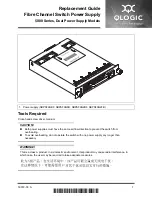
7
www.evolutionpowertools.com
(1.14)
ELECTRICAL SAFETY
This machine is fitted with the correct moulded
plug and mains lead for the designated market.
If the supply cord is damaged, it must be
replaced by a special cord or assembly available
from the manufacturers or its service agent.
(1.15)
OUTDOOR USE
WARNING:
For your protection if this tool is to
be used outdoors it should not be exposed to
rain, or used in damp locations. Do not place
the tool on damp surfaces. Use a clean, dry
workbench if available. For added protection
use a residual current device (R.C.D.) that will
interrupt the supply if the leakage current to
earth exceeds 30mA for 30ms. Always check
the operation of the residual current device
(R.C.D.) before using the machine.
If an extension cable is required it must be a
suitable type for use outdoors and so labelled.
The manufacturers instructions should be
followed when using an extension cable.
(2.1)
POWER TOOL GENERAL
SAFETY INSTRUCTIONS
(These General Power Tool Safety Instructions
are as specified in BS EN 60745-1:2009 &
EN 61029-1:2009)
WARNING: Read all safety warnings and
instructions.
Failure to follow the warnings
and instructions may result in electric shock,
fire and/ or serious injury.
Save all warnings and instructions for
future reference.
The term “power tool” in the warnings refers
to your mains-operated (corded) power tool
or battery-operated (cordless) power tool.
(2.2)
1) General Power Tool Safety Warnings
[Work area safety]
a) Keep work area clean and well lit.
Cluttered or dark areas invite accidents.
b)
Do not operate power tools in
explosive atmospheres, such as in
the presence of flammable liquids,
gasses or dust.
Power tools create sparks
which may ignite the dust or fumes.
c) Keep children and bystanders away
while operating power tool.
Distractions
can cause you to lose control.
(2.3)
2) General Power Tool Safety Warnings
[Electrical Safety]
a) Power tool plugs must match the
outlet. Never modify the plug in any
way Do not use any adapter plugs
with earthed (grounded) power tools.
Unmodified plugs and matching outlets
will reduce the risk of electric shock.
b) Avoid body contact with earthed
or grounded surfaces, such as pipes,
radiators, ranges and refrigerators.
There is an increased risk of electric shock
if your body is earthed or grounded.
c) Do not expose power tools to rain or
wet conditions.
Water entering a power tool
will increase the risk of electric shock.
d) Do not abuse the cord. Never use the
cord for carrying, pulling or unplugging
the power tool. Keep cord away from
heat, oil, sharp edges or moving parts.
Damaged or entangled cords increase the risk
of electric shock.
e) When operating a power tool outdoors,
use an extension cord suitable for outdoor
use.
Use of a cord suitable for outdoor use
reduces the risk of electric shock.
f) If operating a power tool in a damp
location is unavoidable, use a residual
current device (RCD) protected supply.
Use of an RCD reduces the risk of electric shock.








































